On Friday, 17th December 2021, The Faculty Of Clinical Sciences of the College Of Health Sciences, University of Ilorin was treated to a beautiful 60-minute learning experience via an open zoom webinar.
The lecture titled “Omicron Infection In Nigeria: the Science, the Politics, the Myths and the Projection for the Immediate and Long term”, powered by the Medical Education Resources Unit (MERU) of the College was delivered by Dr. Ifedayo Adetifa – Director General, Nigeria Centre for Disease Control (NCDC). Dr. Adetifa is an alumnus of the Better-by-far Medical School, a fellow of the West African College of Physicians (Paediatrics), and an infectious diseases epidemiologist.
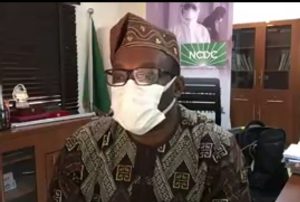
The host and chairperson of the lecture, Prof. I. A. Katibi – Dean of the Faculty, set the ball rolling with a short address and reading of the speaker’s citation with an acknowledgment of the Faculty’s leadership, his classmates, and other high-molecular-weight people on the call, after which the NCDC DG began his presentation. In the lecture he alluded the fact that the COVID-19 gist wasn’t new to such scientific gathering, but touched briefly on the global impact of COVID-19 such as having claimed about 5 million lives, and incurring a projected cost of about 28 trillion USD by 2025 to the global economy. Local statistics have also shown that COVID-19 is present in all 36 states of the federation including the FCT.
Speaking further, he said there have been 3 previous waves of the pandemic in Nigeria, with the 2nd wave having the highest peak, and that the 4th wave is currently ensuing. As regards the different variants of the SARS-CoV-2, he noted that the causative organism – a RNA virus – possesses the capacity to come up with different variants in response to vaccines and drugs, and currently, about 4 strains have been detected so far viz Wuhan, UK, Delta, and the most recent Omicron variants. However, the severity of the disease varies with each strain. He also added that there have been concerns about a synergy between the Delta and Omicron variants. Mentioning that the Omicron variant has been reported in about 70 countries, although he believes it’s already in more.
This Omicron variant is easily detectable by the Polymerase Chain Reaction Diagnostics, and more transmissible, with its transmissibility greater in the unvaccinated folks. The first detected Omicron variant in Nigeria was on the 1st of December, in a patient with a travel history to South Africa, and as of 17th December, 11 cases had been reported.
The DG proceeded to debunk the myth that “COVID-19 only exists as an imagination, and is not real”, and reiterated the fact that the world has faced a daily simultaneous increase in both COVID-19 cases and deaths. He was firm to state that the figures are not just numbers, but represent friends, family, and colleagues that have been lost. He also dismissed the notion that the Omicron variant is nothing to be worried about, as he enlightened the audience that emerging evidence has shown that the cases are increasing, and could lead to our health centers being overwhelmed.
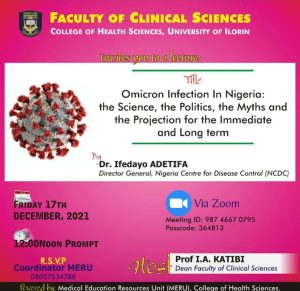
On COVID-19 vaccination, he drove home the point on the safety and effectiveness of the available vaccines, as case management reports from the last quarter of the year showed that there were more deaths in the unvaccinated than in the vaccinated. He also admitted that projections for the immediate and long term effect of the viral disease would be difficult to ascertain, as new information and evidence are brought forth every day, and it’s almost impossible to make predictions. He therefore advised that people be counselled to avoid unnecessary travel to curb the spread of the virus. He then gave his closing remarks and appreciated his audience after about 45 minutes of commencing his lecture.
After this, the host – Prof. Katibi – thanked the audience and applauded the NCDC DG for delivering such an enlightening lecture, and then proceeded to asking of questions and answers (Q and A). Some of the participants that contributed to this Q and A session included Prof. Ayodele Ojuawo, Prof. Olugbenga Mokuolu, Prof. Kolade Ernest, and Prof. Dupe Ademola-Popoola. Other guests in attendance were former Provost of the College, Serving and past Departmental Heads, Professors and Academics from other Faculties and Colleges, the Chairman of the Nigerian Medical Association (NMA) Kwara State Chapter, Nurses, and Medical Students.

About Author:
Oluwatobi Ogunlade is a Civic Leader, and Medical Doctor, with interests in Tech and Emergency Psychiatry. He is a firm believer that changing the world requires taking one right step at a time. He is an avid reader and writer, freelancer, amateur guitarist, and primigenial TechBro. He writes from Lagos, Nigeria.

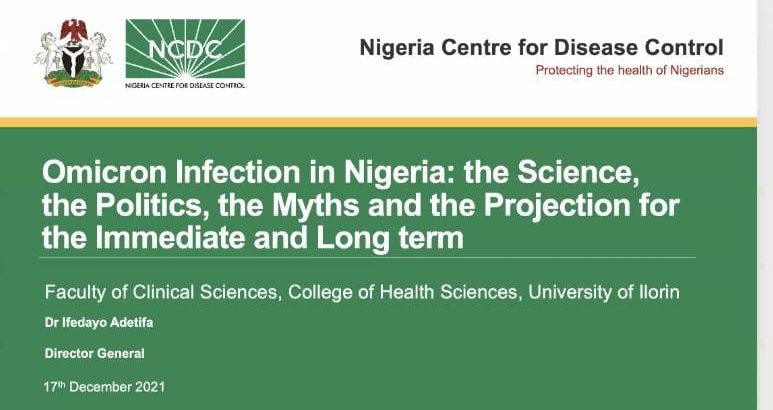
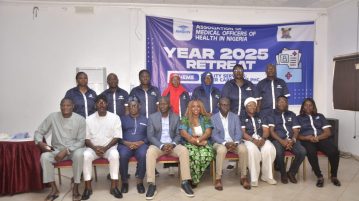
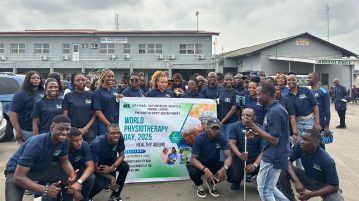
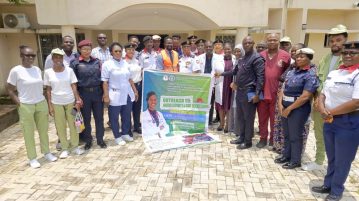
Discussion1 Comment
Pingback: Revitalizing Primary Health Care in Nigeria: Way forward by Stakeholders and Policy makers